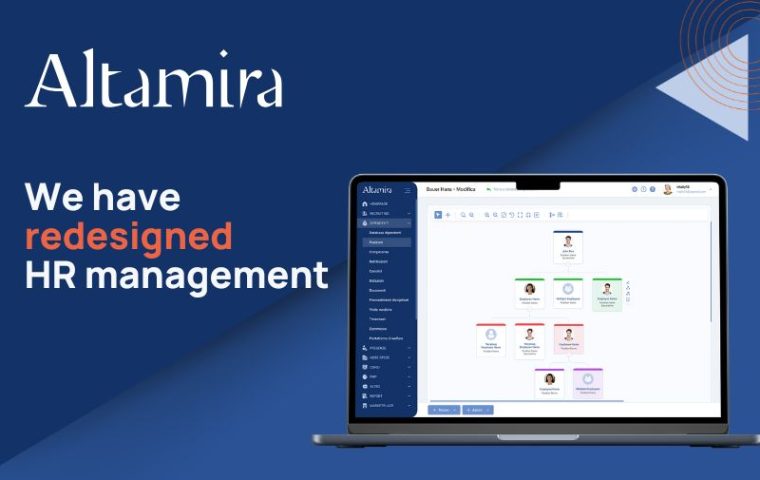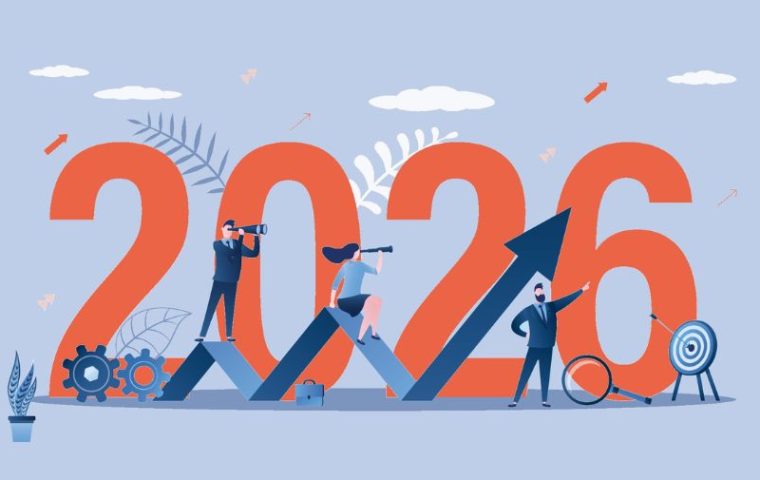Are you looking for HR trends for 2022? Find them here!
As the Christmas holidays draw near, there are plenty of forecasts about which trends will define the HR sector in 2020.
We tried to put all these different views in order, so we analyzed the trends predicted by 12 authoritative articles and compiled a ranking of the most popular ones. For each trend, we indicate how many articles mentioned it in brackets.
The 18 main HR trends for 2019
- AI and automation (10). At least in the US, 2020 will probably be the year when artificial intelligence applied to human resources management will really take off. Up to now, AI has been introduced mainly in the world of recruiting, but it is set to make an appearance as part of other HR processes as well, automating activities with little added value and speeding up decision-making processes.
- The role of HR will change, becoming more strategic and specialized (8). The HR department of the future will no longer have to deal with many repetitive tasks and will be able to focus more on strategy and becoming a real partner for management. There will be an increase in specialization and an updating of required skills (for instance, HR Analytics), which will result in the progressive disappearance of the figure of the HR Generalist.
- Flexibility and organization (8). Flexibility is a paradigm that will be applied to the whole company. Not only with regard to the way of working—with an increasing proportion of telework and smart working—but also at the level of the organizational chart, which will become less vertical and more horizontal and fluid. This is an indispensable change in order to deal with a so-called “VUCA world” (i.e. one characterized by Volatility, Uncertainty, Complexity and Ambiguity). The leadership style will also change, as will technology, which will become more flexible and more pervasive.
- HR Analytics (8). One of the most often mentioned trends for 2020 in the articles we looked at was the advent of HR Analytics as a tool to improve the quality of work. The statistics being measured and tracked will become increasingly sophisticated, and they will be managed by an in-house team instead of being outsourced. It is no coincidence that, according to research conducted by LinkedIn, more and more Human Resources professionals are including People Analytics among their skills.
- Experience and Engagement (7). Whether they call it Employee Experience or Employee Engagement, in 2020 the top companies will commit to carefully managing every single touch point between the employee and the company, down to the smallest detail. They will do so through implementing career plans, wellness programs, diversity awareness and reward systems, as well as interactive, easy-to-use and transparent HR software. This focus on employees will be rewarded by increased retention and improved employer branding.
- Reskilling (6). To cope with the rapid changes in the world of work caused by digitization, it will be necessary to update employees’ skills, or even make radical changes to them to ensure they don’t become obsolete. The new technologies and the possibility of delivering training content in a digital format, including on mobile phones, will be a great help in this task.
- Global work teams (5). Globalization and modern digital collaboration tools will enable companies to recruit talent anywhere in the world. This means that the HR department will have to attract and manage a highly heterogeneous workforce, developing new strategies and processes for this purpose. Not just the place where work is performed will change, but also the hours, the type of contracts and the nature of the collaboration relationship, involving issues such as engagement, compensation, leadership, etc.
- AR & VR (3). Virtual and Augmented Reality will have an even larger sphere of applications in 2020, and not only in training. Among the possible new uses for these technologies, we also find onboarding and internal communications.
- Employee wellness (3). The wellness programs offered by companies to their employees will become increasingly rich and complex, and may also include psychological counseling.
- Employer Branding (3). At the global level, the tendency for 2020 is to take employer branding for granted, but this is still a very hot HR trend in many countries. Human Resources will have to collaborate with marketing in the design of campaigns that will also promote the brand as an employer.
- Intergenerational conflict (3). In 2020, no less than 5 generations of workers will work together in many offices, with millennials making up the largest percentage and Generation Z rapidly increasing its share. One of the most difficult tasks for the HR department will be to help people work together who have very different mentalities, habits—including forms of work contracts—and expectations.
- New internal communication tools, offering immediacy and transparency (3). Email chains and other traditional communication tools will be replaced by more agile, direct and real-time tools. Some companies will decide to use popular social networks and apps such as WhatsApp internally, while others will use specialized software such as Slack.
- HR outsourcing (3). The internal HR team will become smaller and more specialized, while many activities will be outsourced to external companies.
- Chatbots for HR (2). After experimenting with this mainly in the field of recruiting, companies will start to test chatbots also for the management of employees, starting from the onboarding process.
- Corporate Environmental Responsibility (2). Companies will focus more and more on environmental issues, and it will be the HR department’s responsibility to raise employee awareness on these issues, for example by encouraging recycling or removing disposable plastics from the office environment. Companies will no longer be thinking about profits alone, but also about their role in society, the environment and the local context.
- Gamification (2). After having been used mainly for recruiting (but without becoming a widespread phenomenon), in 2020 the logic of gamification will also be adopted for training, internal communications and competency mapping.
- The gig economy (2). The growth of this phenomenon will continue in 2020. Companies will have an ever-smaller proportion of full-time employees, and will increasingly need to integrate external professionals into their processes.
- Team development (2). Managers and HR managers will focus more on developing teams capable of working in an efficient and coordinated manner than on single individuals.

An example of a report dedicated to the analysis of staff skills, taken from Altamira Performance.

A professional career site is the starting point for any employer branding strategy: here is the template offered by the Altamira Recruiting ATS.
Sources: Atrivity, BW Businessworld, Corriere del lavoro , HRD Connect , HRM Netherlands, Human Resource Executive , Klein, Masvoz, People Matters, Software Advice, Sympa, Thrive Global.
Copyright: ©AndreyPopov/Adobe Stock














